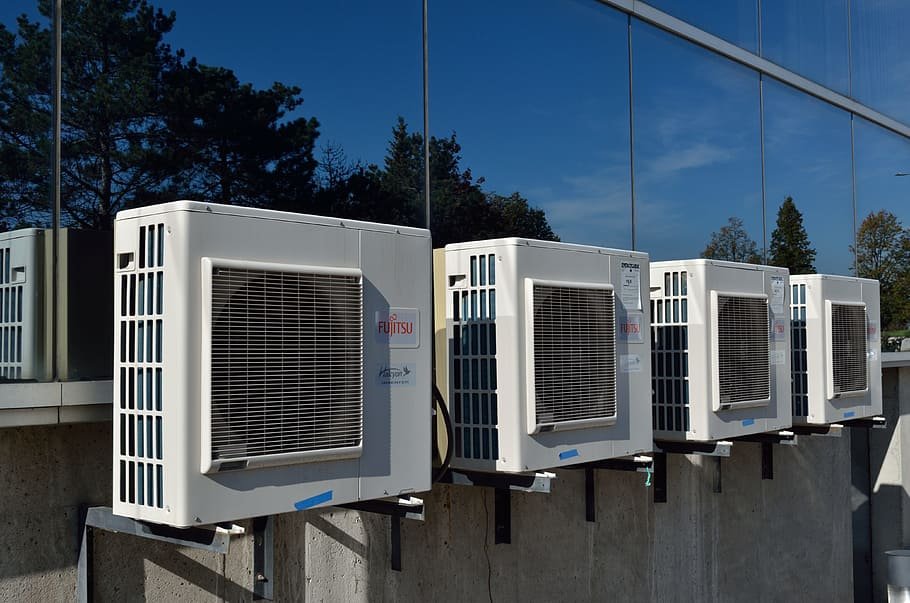Efficiency Unleashed: Unraveling the Secrets of Top-Notch Commercial HVAC Systems in 2024
- 1 The Evolution of HVAC Efficiency
- 2 Innovations in HVAC Components
- 3 Strategic Implementation and Maintenance
- 4 Future-Proofing Through Sustainability
- 5 Conclusion
- 5.1 FAQs:
- 5.1.1 Q: What are the key drivers behind the evolution of commercial HVAC systems in 2024?
- 5.1.2 Q: How do intelligent technologies improve the efficiency of HVAC systems?
- 5.1.3 Q: What role do renewable energy sources play in modern HVAC systems?
- 5.1.4 Q: What are variable speed compressors, and how do they differ from traditional compressors?
- 5.1.5 Q: How do zoning systems contribute to energy efficiency in commercial spaces?
- 5.1.6 Q: Why is preventive maintenance crucial for commercial HVAC systems?
- 5.1.7 Q: How can businesses future-proof their HVAC systems through sustainability practices?
In Short:
- Technological Advancements: Commercial HVAC systems in 2024 will focus on integrating smart technology, like IoT, for real-time monitoring and control, enhancing energy efficiency.
- Renewable Energy: There’s a shift towards reducing environmental impact by using renewable energy sources like solar and wind power and eco-friendly refrigerants.
- Optimized Performance: Innovations in components like variable speed compressors and advanced heat exchangers improve energy efficiency and system performance while strategic implementation and maintenance ensure long-term sustainability.
In the evolving landscape of commercial heating, ventilation, and air conditioning (HVAC) systems, 2024 marks a pivotal point in technological advancements and energy efficiency. As businesses worldwide strive for sustainability and operational efficiency, understanding the intricacies of modern HVAC solutions becomes paramount.
This article delves into the core components, innovative technologies, and strategic implementations that define top-notch commercial HVAC systems today, shedding light on how organizations can optimize their environments and energy consumption.
The Evolution of HVAC Efficiency
Over recent years, the transformation of commercial HVAC systems has been driven by a relentless pursuit of energy efficiency and reduced carbon footprints. In 2024, this evolution will be characterized by integrating intelligent technologies and adopting green initiatives.
- Smart Technology Integration: Modern HVAC systems now have advanced sensors and IoT (Internet of Things) capabilities, allowing for real-time monitoring and control. These systems can adjust settings based on occupancy levels, weather conditions, and other environmental factors, significantly reducing energy waste.
- Green Initiatives and Renewable Energy: Another hallmark of this evolution is the shift towards renewable energy sources, such as solar and wind, in powering HVAC systems. Coupled with the use of environmentally friendly refrigerants, these advancements substantially decrease the overall environmental impact of commercial HVAC operations.
Innovations in HVAC Components
The efficiency of commercial HVAC systems largely depends on their components’ performance and design. Two of the most critical elements that have seen significant innovation in 2024 are compressors and heat exchangers.
- Variable Speed Compressors: Unlike traditional fixed-speed compressors, variable-speed models can precisely adjust their output to match the cooling or heating demand. This adaptability enhances comfort levels and significantly improves energy efficiency, lowering operational costs.
- Advanced Heat Exchangers: The development of new materials and designs of heat exchangers has improved thermal transfer efficiency while minimizing size and weight. These advancements enable quicker temperature adjustments and reduce energy consumption, further elevating the system’s overall performance.
Strategic Implementation and Maintenance
The benefits of advanced HVAC systems extend beyond their components and technologies; strategic implementation and regular maintenance play a crucial role in unlocking their full potential.
- Zoning Systems: Implementing zoning systems allows for the independent control of different areas within a commercial space, ensuring optimal comfort and efficiency. Businesses can significantly reduce energy waste by heating or cooling only the used spaces.
- Preventive Maintenance: Regular maintenance is essential to ensure the longevity and efficiency of HVAC systems. This includes routine inspections, cleaning of filters and ducts, and timely repairs. A well-maintained system operates more efficiently and is less likely to experience costly breakdowns. When issues arise, professional commercial HVAC repair services are crucial for addressing problems quickly and efficiently, minimizing downtime and extending the system’s lifespan. By investing in skilled repair services, businesses can avoid the escalated costs associated with significant malfunctions or system failures, ensuring their HVAC systems remain in peak condition.
Future-Proofing Through Sustainability
As we look towards the future, the sustainability of HVAC systems emerges as a critical consideration. This involves utilizing renewable energy sources and adopting sustainable system design and operation practices.
- Eco-friendly Materials: Using sustainable materials to construct HVAC components reduces the environmental impact of manufacturing and disposal.
- Lifecycle Analysis: Conducting a lifecycle analysis of HVAC systems helps identify areas where efficiency can be improved, from production and installation to operation and end-of-life disposal.
Conclusion
A confluence of technological innovation, strategic implementation, and a steadfast commitment to sustainability will define the landscape of commercial HVAC systems in 2024. By embracing innovative technologies, optimizing system components, and adhering to sustainable practices, businesses can significantly enhance their operational efficiency and environmental stewardship.
As the industry continues to evolve, staying informed about these advancements and best practices is essential for organizations looking to optimize their HVAC systems and contribute to a more sustainable future.
FAQs:
Q: What are the key drivers behind the evolution of commercial HVAC systems in 2024?
A: The main drivers are a focus on energy efficiency, reduced carbon footprints, and the integration of smart technologies.
Q: How do intelligent technologies improve the efficiency of HVAC systems?
A: Smart technologies enable real-time monitoring and control, adjusting settings based on factors like occupancy and weather conditions to reduce energy waste.
Q: What role do renewable energy sources play in modern HVAC systems?
A: Renewable energy sources like solar and wind power are increasingly used to power HVAC systems, reducing reliance on non-renewable resources and lowering environmental impact.
Q: What are variable speed compressors, and how do they differ from traditional compressors?
A: Variable-speed compressors can adjust their output to match cooling or heating demand, improving energy efficiency compared to fixed-speed compressors.
Q: How do zoning systems contribute to energy efficiency in commercial spaces?
A: Zoning systems allow for independent control of different areas, ensuring heating or cooling is only directed to occupied spaces, thus reducing energy waste.
Q: Why is preventive maintenance crucial for commercial HVAC systems?
A: Preventive maintenance helps ensure system longevity and efficiency by conducting routine inspections, cleaning, and timely repairs, reducing the risk of costly breakdowns.
Q: How can businesses future-proof their HVAC systems through sustainability practices?
A: By using eco-friendly materials in construction, conducting lifecycle analyses, and adopting sustainable design and operation practices, businesses can ensure their HVAC systems remain efficient and environmentally friendly over time.

















